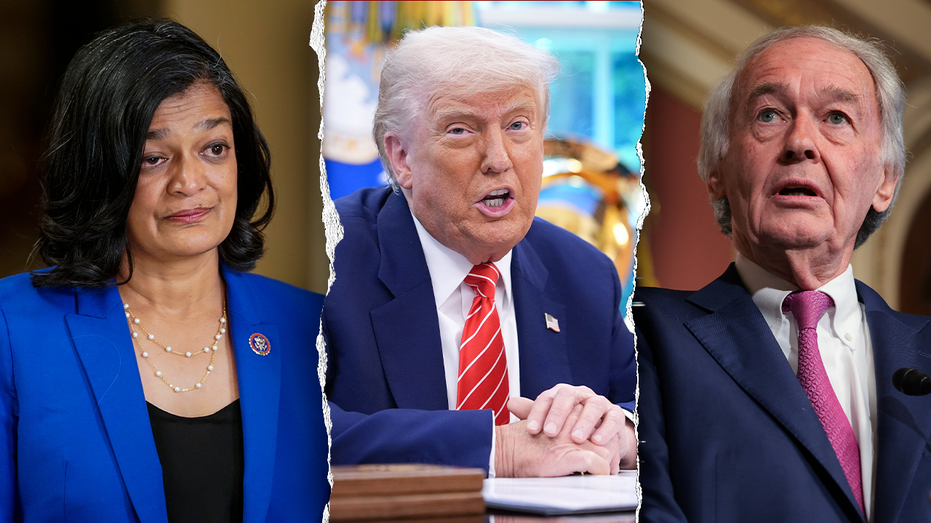Critics Slam Trump Over 'Disgusting' Travel Ban Amid Accusations of Reimposing Muslim Restrictions
Democrat lawmakers and critics slam Trump’s travel ban, alleging it’s driven by Islamophobia and bigotry.

The Trump administration's newly announced travel restrictions have ignited a fierce debate on Capitol Hill and across social media, as Democratic lawmakers and advocacy groups accuse President Donald Trump of enacting what they describe as a "bigoted" policy rooted in Islamophobia and racial discrimination. The latest directive, signed on Wednesday, restricts entry into the United States from 19 countries, including Afghanistan, Iran, Somalia, Libya, and Yemen—nations that were classified as "very high risk" due to concerns over terrorist activity, unstable governments, and high visa overstay rates. Seven additional countries, such as Venezuela, Cuba, and Laos, are subject to partial travel limitations.
Rep. Pramila Jayapal of Washington State was among those to issue a stinging rebuke, taking to social media to denounce the policy: "This discriminatory policy, which limits legal immigration, not only flies in the face of what our country is supposed to stand for, it will be harmful to our economy and communities that rely on the contributions of people who come to America from this wide range of countries." She warned that banning entire populations because of their governments sets a "dangerous precedent" and blames individuals for the actions of their states.
President Trump defended the order in a social media video, linking the move to recent security concerns, including the terror attack in Boulder, Colorado, involving an Egyptian national accused of entering the U.S. legally, but remaining after his visa expired. "We don't want them," the president said, asserting that foreign nationals who are not properly vetted represent an ongoing threat and emphasizing that lax immigration policies have led to "millions and millions" of undocumented migrants present in the country.
The response from critics was immediate and forceful. Rep. Judy Chu of California blasted the move as "disgusting, bigoted, and Islamophobic," arguing that it contradicts fundamental American values without enhancing national security. Others, like Director of Immigration Studies David Bier, characterized the action as an unjustifiable case of "draconian discrimination" against specific nationalities.
Similar sentiments were echoed by Rep. Yassamin Ansari of Arizona, who declared the policy "cruel, racist, and un-American," and by Muslim civil rights organizations, including the Council on American Islamic Relations (CAIR), which warned that the ban would do little to improve safety while fueling government abuse based on "religious identity and political activism."
Prominent senators and advocacy groups joined the outcry. Sen. Ed Markey of Massachusetts insisted that Trump's continued efforts to implement restrictive travel measures "will NOT make America safer," while Rep. Don Beyer of Virginia accused the administration of using "prejudice and bigotry" to keep people out. Oxfam America CEO Abby Maxman added that targeting nations with predominantly Black, brown, or Muslim populations "deepens inequality and perpetuates harmful stereotypes, racist tropes, and religious intolerance."
The White House, for its part, justified the move as "commonsense" protection, targeting only those nations that "lack proper vetting, exhibit high visa overstay rates, or fail to share identity and threat information." Deputy press secretary Abigail Jackson reiterated that President Trump is "fulfilling his promise to protect Americans from dangerous foreign actors that want to come to our country and cause us harm."
This new proclamation follows years of controversy surrounding Trump’s previous executive orders that enacted travel bans and "extreme vetting" for several majority-Muslim countries during his first term in office. While the administration has consistently denied that these policies constitute a "Muslim ban," critics remain unconvinced, pointing to the disproportionate impact on Muslim-majority nations and the broader implications for America's image and values on the world stage.
As debate rages on, the travel ban is set to become another flashpoint in the deeply polarized discussion over immigration, national security, and the definition of American inclusivity in the run-up to the next election cycle.




